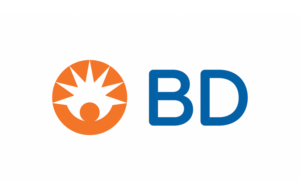 HHS’s Biomedical Advanced Research and Development Authority is helping BD expand operations and manufacturing capacity in Nebraska to boost syringe and needle supplies for an eventual COVID-19 vaccine.
HHS’s Biomedical Advanced Research and Development Authority is helping BD expand operations and manufacturing capacity in Nebraska to boost syringe and needle supplies for an eventual COVID-19 vaccine.
Becton Dickinson (NYSE:BDX) said today that the total project will cost $70 million, with BARDA providing $42 million. The company expects the new capacity to be online within 12 months.
BARDA will have priority access to injection devices from the new manufacturing lines — not only for COVID-19 but also for future pandemics.
BD has finalized an initial pandemic order, due by the end of the year, for 50 million needles and syringes to support U.S. vaccination efforts. The initial order has a Defense Production Act designation, which enables BD to seek priority access to manufacturing raw materials. BD also expects enhanced U.S. government logistics support.
There is no approved COVID-19 vaccine at this time, but a host of companies are racing to create one as part of the federal government’s Operation Warp Speed public-private partnership.
“BD’s commitment to produce 50 million vaccine injection devices by the end of this year to support the U.S. COVID-19 vaccination campaign is the latest effort in the company’s multifaceted global response to this virus, and the new, strategic public-private partnership will help ensure the U.S. is prepared for future pandemic vaccination efforts,” said Rick Byrd, president of Medication Delivery Solutions for BD.
“Over the past four years, BD has committed to invest more than $340 million in our Nebraska facilities,” Byrd added.
BD said it does not expect the effort related to the pandemic will impact BD’s ability to fulfill existing customer requirements for needles and syringes, including the annual flu vaccination and childhood immunization campaigns. A month ago. Canada ordered 37 million syringes from BD to support COVID-19 vaccination efforts.
News of the syringes manufacturing partnership between the federal government and BD comes on the same day as an LA Times report that questioned the readiness of two companies that had already inked government contracts to provide syringes: Retractable Technologies (Little Elm, Texas), which has an $83.8 million contract, and Marathon Medical (Aurora, Colo.), which has a $27.4 million contract with an option to go up to $54 million.
HHS in a statement to the Times said that it deemed the Marathon and Retractable proposals “acceptable to meet the stated delivery requirements.”
